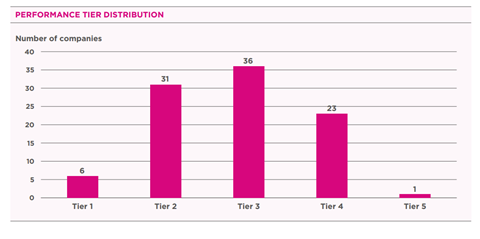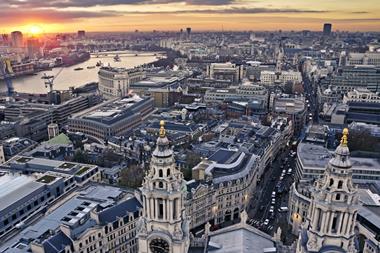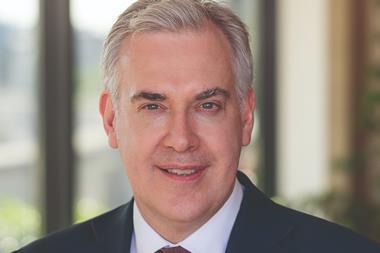CCLA has ranked the UK’s largest companies on how they are tackling slavery in their supply chains.
The London-based asset manager, which specialises in running money for churches, charities and local authorities, has launched a benchmark to “support engagement efforts and to help investors understand which companies are active – and to what extent – in the fight against modern slavery”.
The move comes just days before European lawmakers gather in Strasbourg to thrash out the details of the Corporate Sustainability Due Diligence Directive – legislation that could force companies and the finance sector to take responsibility for human rights abuses, including modern slavery, taking place in their portfolios or value chains.
The new benchmark explores how the UK’s largest companies are combating slavery in their operations and supply chains. It is based on statutory requirements, government guidance and international voluntary standards on business and human rights.
Portfolio companies are assigned to one of five tiers, based on their public disclosures. Among those to come out on top are fashion retailers Marks & Spencer and Next, and consumer goods giant Unilever.
“It was notable that all of those companies appearing in tier one and half those appearing in tier two were consumer discretionary and consumer staples,” said CCLA in a statement. “These sectors are at greatest risk of modern slavery and are more answerable to consumers.”

Only one company was assigned to tier five, the lowest rank: Indian communications firm Airtel Africa, which operates across 14 African countries, did not disclose on modern slavery or respond to CCLA’s engagement at the time of the assessment.
Financial institutions scored particularly badly, falling largely into tiers three and four. This is partly because the sector is not covered by the UK Modern Slavery Act, the report noted.
CCLA’s chief executive officer, Peter Hugh Smith, said it would use the new benchmark as the basis for engagement with companies.
“In the event that companies in tiers four and five do not engage, we will vote against their financial statement and annual accounts,” he added.
CCLA convenes a group of 65 institutional investors, as well as academics and NGOs, dedicated to setting targets and monitoring progress on modern slavery at companies.
Last year, it led on a joint letter calling for companies sourcing products from the UK agricultural sector to oppose the practice of asking migrant workers to pay recruitment fees that could leave them in debt bondage.
The asset manager also produces a benchmark assessing companies’ management and disclosure of mental health.
The latest digital edition of IPE’s magazine is now available























